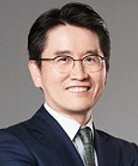Beijing, Moscow siding with Pyongyang
Beijing, Moscow siding with Pyongyang
Posted June. 08, 2019 07:31,
Updated June. 08, 2019 07:31
Chinese President Xi Jinping and Russian President Vladimir Putin said in a joint statement on Wednesday, “Issues on the Korean Peninsula should be resolved by maintaining the goal of exchanging (North Korea’s) denuclearization with Pyongyang’s security guarantee and economic development, and denuclearization with the establishment of a peace regime.” The two leaders went on to say, “China and Russia will push to ensure that the U.N. Security Council will display a positive role.” Countering Washington’s stance that sanctions against Pyongyang cannot be eased without the country’s denuclearization, Beijing and Moscow have indicated that they will provide support to Pyongyang by easing or lifting the U.N. Security Council’s sanctions.
The joint statement by the Chinese and Russian leaders can be seen as reconfirmation that they have reiterated their conventional stance to support concurrent halt of the North’s nuclear and missile tests and South Korea-U.S. joint military drills, and concurrent pursuit of denuclearization and establishment of a peace regime on the Korean Peninsula. However, Russia and China have supported North Korea in the issue of sanctions against the North wherein Pyongyang and Washington are in a standoff since the collapse of Trump-Kim Jong Un summit in Hanoi on Feb. 28. The joint statement by Xi and Putin called for “balanced resolution,” but heralded collective response at the Security Council level aimed at easing sanctions as demanded by North Korea. Even so, the statement kept silent about the North’s successive missile provocations. China and Russia, which are in dispute with the U.S. over trade and security issues, would intend to keep North Korea as its ally for now, but their unilateral siding with Pyongyang will not bring about a solution to Pyongyang’s denuclearization.
The Hanoi summit collapsed because Pyongyang made absurd demands without any blueprint, while objecting to define the end of the North’s denuclearization. Now Pyongyang is rejecting dialogue while claiming that the U.S. should change its calculation method. Furthermore, Pyongyang boldly went so far to make the brinkmanship provocation of swaying reciprocal suspension of nuclear tests (by Pyongyang) and military exercise (by Seoul and Washington), which had served as a basis for dialogue. Against this backdrop, China and Russia are supplying food and refined oil to the North, supporting the Kim Jong Un regime’s survival. Beijing and Moscow should realize that they may end up assisting Kim’s dangerous provocations, which will bring Northeast Asia into a colossal catastrophe.







